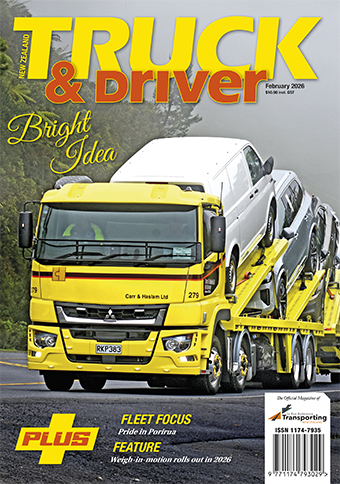
Fixing what needs to be fixed
Posted: 28-Nov-2025 |
The recent sentencing of Ashik Ali to three years imprisonment after he caused the death of roadworker Johnathan Walters has led to conversations throughout the industry and media about how to avoid similar tragedies.
Today I want to set out the reform our sector needs to support strong industry safety standards, and keep everyone safe on the roads.
Firstly though, I’d like to refer readers to the sentencing remarks from Justice Lang, that set out the severity of Mr Ali’s systematic offending:
“… This was not a one-off incident. You knew that your vehicle had issues with the braking system and you had told the NZTA you were not going to repair it and would not use it again. You also knew that the truck had been subject to two non-operation orders, the first of which had been issued on 30 January 2018. You told the NZTA in March 2021 that you would not be using it again.Despite this advice, you obtained new registration plates for the truck in January 2022 and then arranged for it to be modified through the addition of a roller spreader. This was obviously done because you had decided the truck would be used in the future for road construction work. There can be no other explanation for the fact that you modified the vehicle in that way.”
I encourage all operators to read the judge’s remarks. Mr Ali chose not only to ignore compliance but to circumvent it, with tragic results. Determined recidivist offenders are challenging to deal with, however, I hope this custodial sentence will send a clear message to the small minority of non-compliant operators in our sector.
Long overdue TSL reform
The Ministry of Transport and NZTA need to make a comprehensive review of the TSL system an urgent priority. The current TSL system suffers from the dilemma of “shutting the gate after the horse has bolted”.
The current system allows operators without the necessary operational and business expertise to run transport businesses, and this isn’t good outcome for anyone. NZTA and CVST shouldn’t be spending valuable time and resources having to pursue incompetent operators who shouldn’t have been admitted in the first place.
It should be incumbent on NZTA that the agency only issues a license when it is clear and confident that the party it has licenced has the appropriate capability, experience, knowledge and skills to manage the service it provides.
NZTA also needs to look at ways of allowing non-compliant operators hopping between TSL licenses to avoid accountability, going further than the Regulatory Systems (Transport) Amendment Bill currently proposes.
Transporting New Zealand made this point at select committee last month, and recently wrote to NZTA emphasising the need for prompt action. A comprehensive TSL review has been on Ministry of Transport’s work programme since at least 2021.
We need to get practical TSL reform underway now.
Caution around accreditation
While there is widespread industry acceptance about the need for TSL reform, there is a more diverse range of views around the role of voluntary, NGO-run, accreditation schemes in improving safety outcomes.
In my view, our focus and priority should be on ensuring our licensing regime and our regulatory system is effective and efficient. The Government should not be distracted by funding or promoting a cottage industry of voluntary accreditation schemes.
I routinely hear from operators about the significant time and resourcing they dedicate to ensuring compliance with primary legislation, land transport rules and vehicle standards.
The last thing our industry needs is another pseudo-regulatory scheme, which is essentially all that accreditation is. All that will do is increase compliance costs for compliant operators. It will do nothing for parties that choose to ignore compliance or in the worst cases, circumvent it.
Dom Kalasih, Chief Executive of Transporting New Zealand



 + EQUIPMENT GUIDE - FREE
+ EQUIPMENT GUIDE - FREE
